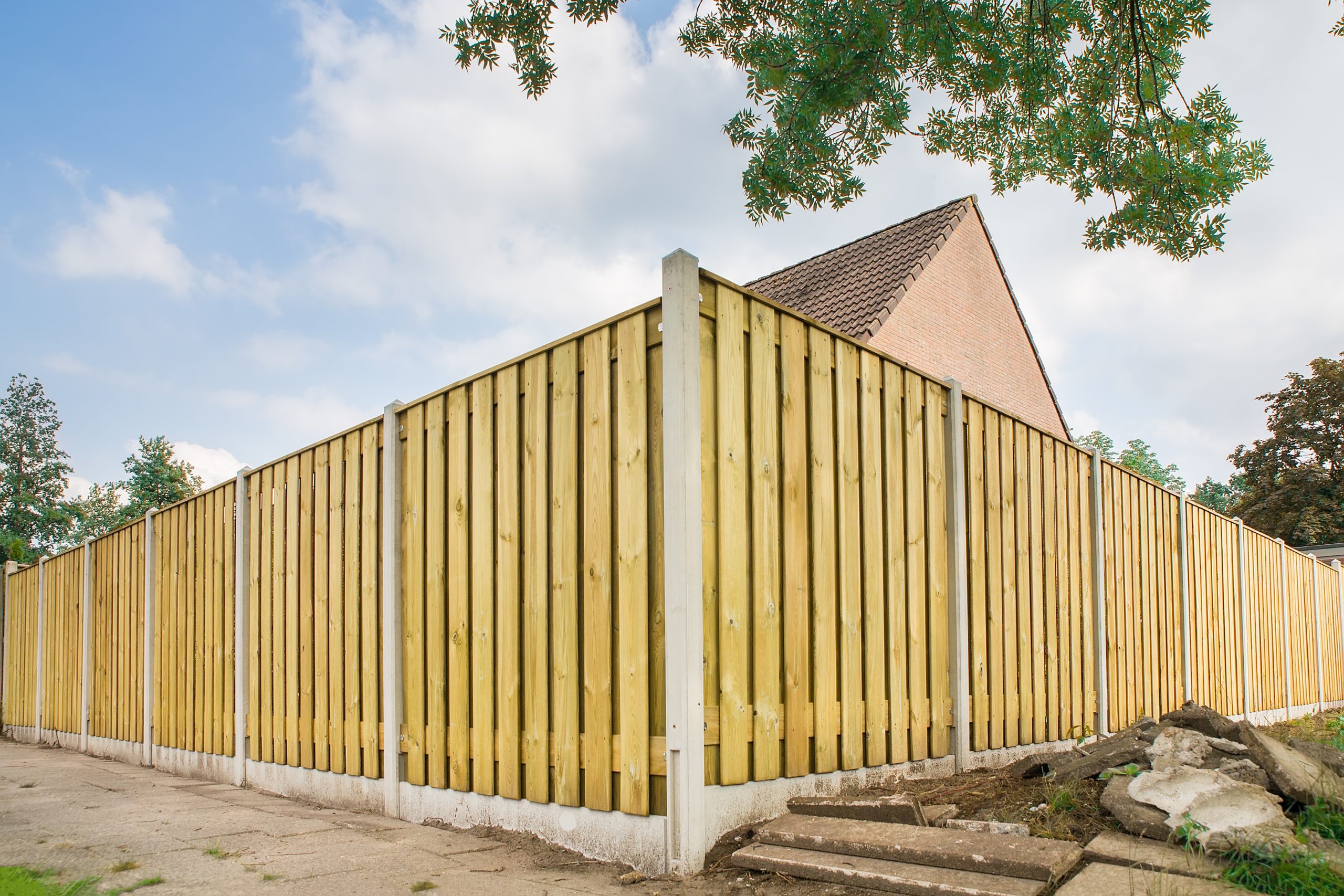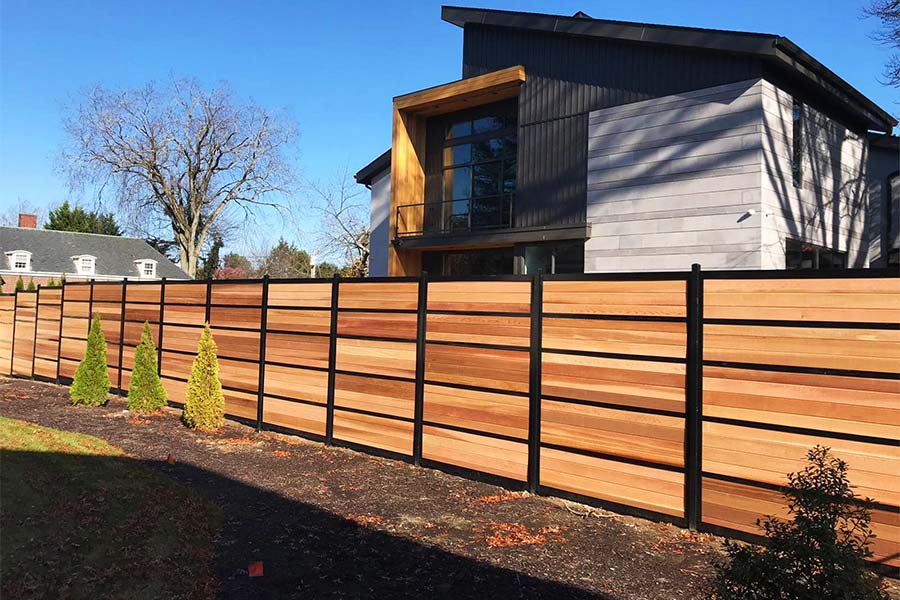All Categories
Featured
What Sorts Of Fence Materials Are Available for Residential and Commercial Projects?

When preparing to install a fencing, picking the best material is crucial for satisfying the visual, useful, and financial requirements of your home. Whether for commercial or property usage, modern-day fence options offer a selection of options to match details demands. Here's a comprehensive take a look at the most typical fence products readily available today.
- Timber Fencing. Timber is a timeless selection for home owners seeking beauty and flexibility. It functions well for personal privacy fencings, attractive styles, and boundary noting.
Trick Advantages of Timber Fencing:
Visual Adaptability: Can be crafted into numerous designs, including board-on-board, picket, and latticework designs. Cost-efficient: Deals cost for lots of jobs, specifically smaller sized property ones. Adjustable: Quickly painted or stained to match a home's exterior. Drawbacks: Calls for regular maintenance, such as discoloring and securing, to safeguard versus weathering and bugs.
- Vinyl Fence. Plastic fence has actually grown in appeal because of its streamlined appearance and marginal maintenance demands. It's a terrific alternative for both domestic and industrial spaces.
Advantages:
Durable and Lasting: Plastic stands up to climate damage, pests, and fading. Easy Upkeep: A fast clean with soap and water maintains it looking beautiful. Trendy Options: Is available in numerous shades and textures, some simulating all-natural wood. Considerations: The initial cost is greater, however the lasting savings on maintenance can make it a smart investment.
- Chain-Link Secure fencing. Chain-link fence is a sensible solution for securing large locations, often used in business, commercial, and leisure homes.
Advantages:
Affordability: One of the most economical fencing alternatives. Toughness: Stands up to use and tear, even in tough environments. Exposure: Gives a clear line of vision while keeping safety. Disadvantages: Minimal aesthetic allure and personal privacy unless integrated with slats or foliage.
- Light weight aluminum Secure fencing. Aluminum offers a sophisticated look without endangering on durability. It's particularly preferred for attractive or safety objectives.
Secret Includes:
Rust-Free: Suitable for damp environments or swimming pool units. Low Upkeep: Requires marginal upkeep contrasted to iron or timber. Stylish Appearance: Frequently made use of to imitate wrought iron without the large price. Considerations: Not as solid as steel, making it less appropriate for high-security demands.
- Wrought Iron Fence. Known for its classic style and resilience, functioned iron is a preferred for upscale properties.

Advantages:
Strength and Protection: Difficult to break or bend, making it suitable for high-security applications. Adjustable Styles: Can be shaped right into complex patterns for an one-of-a-kind look. Long life: With correct upkeep, wrought iron can last for years. Disadvantages: Needs normal upkeep to avoid rust and is among the a lot more costly secure fencing alternatives.
- Compound Fencing. Composite fencings incorporate timber fibers and plastic for a resilient, green choice.
Advantages:
Eco Friendly: Typically made from recycled materials. Reduced Maintenance: Resistant to rot, parasites, and bending. Natural Look: Simulates the appearance of wood without the maintenance. Disadvantages: Greater upfront cost contrasted to standard wood fencing.
- Bamboo Fence. Bamboo is a sustainable and elegant choice, particularly for houses looking for an all-natural aesthetic.
Benefits:
Eco-Friendly: Bamboo is naturally degradable and eco-friendly. Distinct Look: Adds a tropical or Zen-inspired touch. Cost-Effective: Commonly cheaper than hardwoods. Drawbacks: Less resilient in severe environments or versus prolonged direct exposure to wetness.
- Steel Fence. Steel fencing supplies exceptional strength, making it a best alternative for industrial and business requirements.
Features:
Heavy-Duty Strength: Handles considerable effects and weather condition obstacles. Personalized Finishes: Powder covering improves its look and longevity. Protection: Ideal for locations requiring enhanced security. Factors to consider: Higher cost and weight make it less ideal for small projects.
- Stonework or Stone Fencing. For residential properties seeking a extremely durable and irreversible option, masonry or stone fence is a premium option.
Benefits:
Ultimate Toughness: Withstands extreme weather and lasts for years. Soundproofing: Blocks noise, making it optimal for urban locations. Deluxe Aesthetic: Supplies an upscale appearance that enhances high-end properties. Disadvantages: High installment expenses and limited adaptability in layout modifications.
How to Pick the Right Product. When choosing a fencing product, take into consideration the following variables:
Function: Do you need protection, privacy, or attractive appeal? Budget plan: Some materials, like wood and chain-link, are affordable, while wrought iron and stone come with a premium. Maintenance: Materials like vinyl and aluminum are simpler to maintain, while wood and wrought iron requirement normal care. Environment: Some materials, such as bamboo or unattended wood, are less appropriate for severe weather. Conclusion. Fencing products today offer a large array of choices to match different spending plans, functions, and designs. Whether you prioritize longevity, aesthetics, or eco-friendliness, there's a material that will certainly fit your demands. By dealing with a specialist fence specialist, you can explore these choices extensive and make sure a perfect installation for your business or domestic project.
Latest Posts
The Road to Financial Freedom Starts Below
Published Apr 20, 25
1 min read
Maximizing Your WyHy Checking Account
Published Apr 20, 25
1 min read
About Us: Learn More More About Montclare Auto Repair – Your Local Auto Experts
Published Apr 20, 25
2 min read